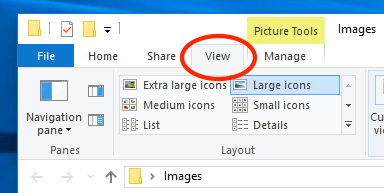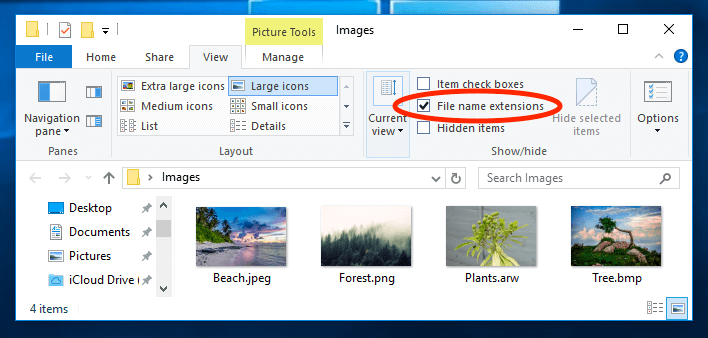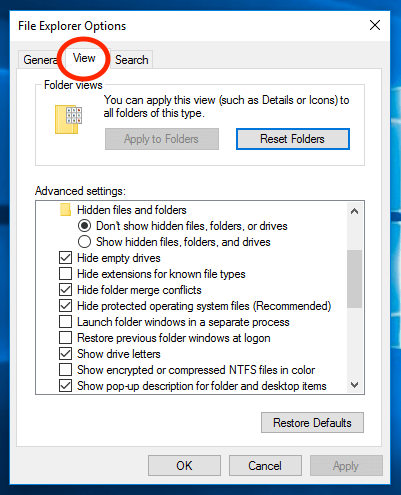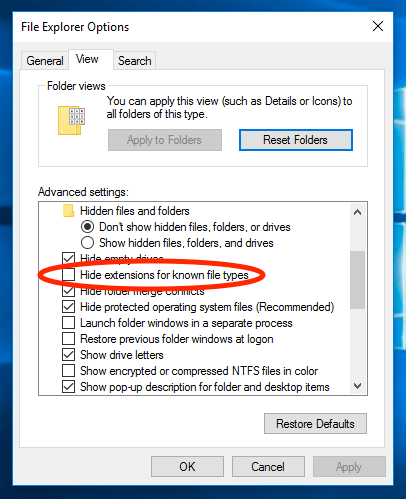How do I show file extensions in Windows 10?
In Windows 10, file extensions for known file types are hidden by default. Fortunately, it's easy to show file extensions, using a checkbox in the File Explorer ribbon.
Step 1
Simply open File Explorer by double-clicking the program icon in the Task Bar. You can also double-click any folder.
![]()
Step 2
Select the View tab as shown below.

Step 3
Click the "File name extensions" check box to show file extensions. You can uncheck the box to hide file extensions.

That's it! Checking the "File name extensions" box will display file extensions for all files. In the image above, you can see the extensions are displayed for each file in the open window.
NOTE: This option applies globally to all folders, so you don't have to manually check or uncheck it again for every folder you open.
Alternative Method
Showing and hiding file extensions in Windows 10 involves the same process as Windows 8. Earlier versions of Windows, such as Windows Vista and Windows 7, required a different process that involves modifying the "View Options" in File Explorer.
You can still use this method in Windows 10, though there are minor differences from previous Windows versions.
Step 1
Open the File Explorer Options control panel and select the View tab.

Step 2
Select or deselect the "Hide extensions for known file types" checkbox.

This will have the same effect as the first method listed above.